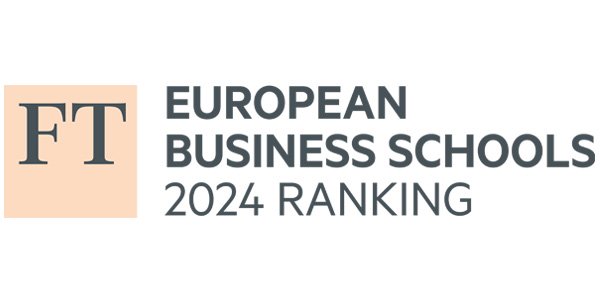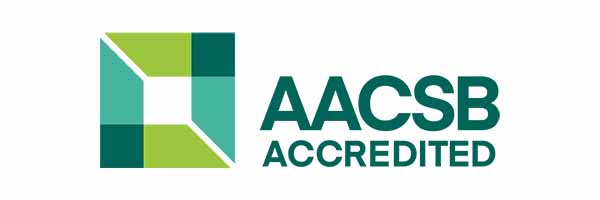MSc Accounting, Finance & Data Analytics
ApplyKey facts
- Start date: September
- Accreditation: Chartered Institute of Management Accountants (CIMA)
- Study mode and duration: 12 months full-time
Study with us
Our MSc Accounting, Finance & Data Analytics is for graduates looking to broaden their previous study of accounting or for those already working in accounting looking to expand their knowledge to include the latest developments in the profession.
On the programme you'll:
- understand the role of accounting in business
- study financial management and security markets
- learn to apply analytical techniques to big data for business decision-making
- gain invaluable practical experience of the factors that drive today’s financial markets at AmplifyME Boot Camp
A number of our MSc programmes are accredited by the Chartered Institute of Management Accountants (CIMA). Eligibility for exemptions from CIMA’s professional examinations is determined by the specific programme undertaken and the optional modules selected. For further information, please refer to CIMA’s own website.
The Place of Useful Learning
UK University of the Year
Daily Mail University of the Year Awards 2026
Scottish University of the Year
The Sunday Times' Good University Guide 2026
Why this course?
The programme is for graduates looking to broaden their previous study of accounting or for those already working in accounting.
The course provides you with an advanced understanding of the theory and practice of accounting and the latest technological innovations in the profession. You will study financial management and securities markets and learn to apply cutting edge technology to strategic business decisions.
The programme provides you with:
- an understanding of accounting theories and their relevance in practice
- critical awareness of recent developments in accounting standards and their implementation
- sound understanding of financial theory and analysis
- the skills to analyse big data using analytical tools such as machine learning
- knowledge of new techniques to analyse non-conventional data such as text and speech
Meet the Course Director
Hear from Course Director Professor Lars Helge Hass as he tells us what you'll get out of studying this course.

Through the programme you'll:
Through the integration of accounting, finance and data analytics, our students and researchers transform financial and environmental data into actionable insights that drive ethical decision-making, transparent reporting, and sustainable business growth.
At Strathclyde, you’ll gain the analytical and technological skills to make a measurable, positive impact on global sustainability issues.
This MSc equips you with cutting-edge skills in AI, data analytics, and strategic problem-solving.
The programme blends advanced accounting, finance and business analytics with real-world sustainability applications, enabling you to interpret complex data, make informed financial and ethical decisions, and drive innovation in contemporary organisations.
By mastering AI-powered analytical tools and developing a global sustainability mindset, you’ll graduate ready to succeed in a rapidly evolving, data-driven business world.
A key feature of the department is our strong link to professional bodies (such as ICAS, CFA, FMI), industry and government, which is an essential part of our approach research and education. Our strong industry connections also provide our students with valuable contacts outside the world of academia.
During your studies, you’ll develop the mindset and skills to continually learn, adapt, and lead in a rapidly changing global environment. Through teamwork, real-world projects, and forward-thinking teaching, you’ll cultivate the confidence and creativity to challenge convention and make a lasting impact in your profession and society.
Surrounded by a dynamic ecosystem of start-ups, researchers, and industry partners, you’ll be empowered to develop new ideas, lead transformational change, and apply your knowledge to create real impact. This vibrant environment nurtures an entrepreneurial mindset, helping you turn insight into action, and ambition into achievement.
You will have access to Strathclyde Inspire, a unique sector-leading initiative that supports and encourages all forms of entrepreneurship. This initiative will provide you with opportunities to develop an entrepreneurial mindset through access to a range of entrepreneurial activities should you wish.
What you'll study
Two research projects
Over the summer, you will work on a series of research projects, supported by an academic supervisor. You can choose a topic from the broad range of issues covered on the programme. You will be assessed on your ability to select and apply relevant theory and research methods. This work may be linked to an issue raised by, or a problem to be solved for, an employer.
Learning & teaching
Core classes will be taught during semesters 1 and 2 with optional classes being offered in semester 2. Classes will be taught through a combination of lectures and workshops. Research projects are undertaken during the summer months.
Assessment
Class assessments will take the form of a class test and/or assignment for most classes. Each class will be examined at the end of the semester they are offered.
Affiliations
Global Association of Risk Professionals (GARP)
Through our academic partnership with the Global Association of Risk Professionals (GARP), the world's leading professional association for risk practitioners, Strathclyde Business School will be able to nominate up to 6 students per year for a Financial Risk Manager Part I Exam scholarship.
Certificate in Quantitative Finance (CQF)
The Certificate in Quantitative Finance (CQF) is the largest professional qualification in quant finance and is recognized by financial companies worldwide. Strathclyde Business School is one of the few Universities recognised by the CQF Institute and our students can register as free members and have the opportunity to access the latest CQF Institute membership resources, including events, research, careers tools, workshops and thought leadership content.
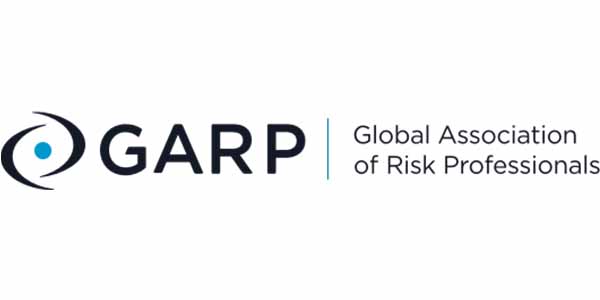
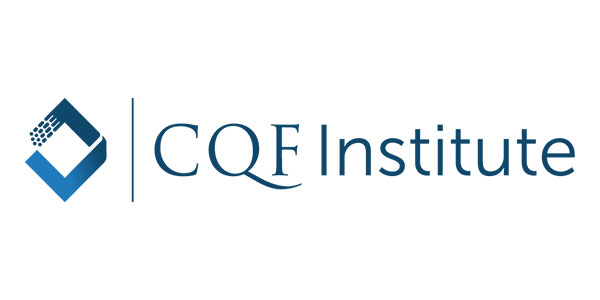
AmplifyME Boot Camp
You can gain invaluable practical experience of the factors that drive today’s financial markets as part of your Master course. Amplify, a global financial trading and training company, in collaboration with Strathclyde Business School, delivers a week-long Boot Camp. This provides you with the opportunity to experience a real-life trading simulation, covering multiple roles in the process.
Amplify is a leading provider of training programmes to the financial industry, and they offer our students the same analyst level practical training they deliver to their clients. Amplify’s clients include Bank of China, Goldman Sachs, HSBC and Bank of America.
Note: the provider of this boot camp may be subject to change.
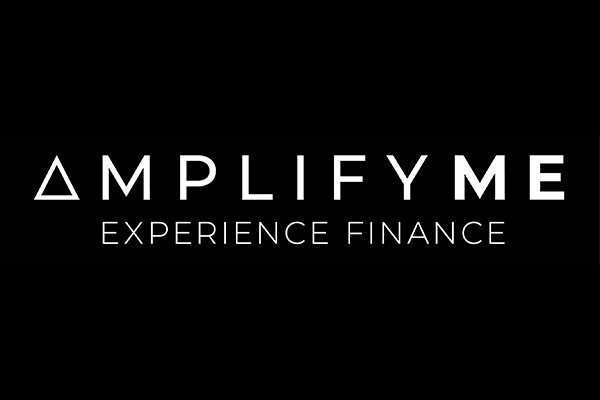
Core classes
Accounting & Financial Analysis
Credits: 20
Teaching: 43 hours, which is split between lectures and workshops
Assessment: class test (30%) and final examination (70%)
The aim of this module is to provide you with an understanding of the basic principles of financial accounting and financial analysis, the ability to interpret financial statements and their use in assessing the financial position and performance of companies.
This module provides an introduction to the principles of accounting and the analysis of financial statements. It will enable you to prepare financial statements in accordance with International Financial Reporting Standards (IFRS) and to interpret and analyse these statements. Particular emphasis is placed on the accounting concepts and information employed in financial analysis and decision taking.
You'll develop the ability to prepare and interpret financial statements and construct cash forecasts. In addition, you'll develop an understanding of the demand and supply for accounting information; an appreciation of the role of financial analysis and analysts; and an awareness of the statistical characteristics of accounting numbers.
Data Analytics for Accounting & Finance
Credits: 10
Assessment: final examination (50%) & individual assessment (50%)
This class aims to bridge the gap between theoretical finance and practical data analytics, preparing you for an increasingly data-driven financial services sector by equipping you with essential data analysis skills.
You will develop predictive models and use advanced tools such as machine learning, while learning how to present output as concise and interpretable visualisations. Emphasis will be placed on developing critical thinking as well as technical proficiency, with discussions concerning the treatment of incomplete data, the appropriate model and technique to use given different scenarios, and the ethical and privacy concerns of using large, novel datasets and machine learning models.
You will be required to effectively interpret and apply data insights across various contexts, including risk management, forecasting interpretation of accounts, and financial technology applications.
Principles of Finance
Credits: 20
Teaching: 33 hours of lectures supplemented by 10 one-hour workshops
Assessment: class test (30%) and final examination (70%)
This module will provide an introduction to financial decision-making, and much of the relevant analysis will be developed from the standpoint of corporate finance. It'll explain how a company should decide on the investments to be undertaken to meet its objectives, generally assumed to be the maximisation of its value. It will be demonstrated that this will require a rate of return on its investments in excess of the return available in the capital market on equally risky financial investments. As a result, it will be necessary to develop an understanding of the capital market risk-return relationship. This will require an appreciation of the nature of risk and how this can be managed by the development of portfolios.
Even though the focus of the module will be on corporate finance, it'll also require an appreciation of how the risk-return tradeoff is determined in the capital market.
Quantitative Methods for Finance
Credits: 20
Teaching: 43 hours, which is split between lectures and workshops
Assessment: class test (30%) and final examination (70%)
This module aims to provide an introduction to statistical techniques that are commonly used in finance, a basic understanding of econometric analysis, and an appreciation of the general role of quantitative methods in finance. The module will focus on the application of statistical techniques to examine empirical issues in finance, such as corporate finance and stock price analysis.
Core classes
Advanced Accounting
The class aims to give you an understanding of the practice of external financial reporting in the context of the quoted company. It emphasises the role of professional judgement in preparing financial statements. Financial reporting lies at the heart of corporate governance.
This is a vitally important area that creates opportunities for debate and discussion. The ongoing globalisation of accounting regulations means that it is possible to conduct such a discussion with an international audience. This class provides an introduction to the preparation and analysis of financial statements in a form suitable for publication. It builds upon the semester 1 class Accounting and Financial Analysis.
The emphasis will be on the forces that have driven the development of standards and regulations, and on the issues arising from the application of accounting standards.
Advanced Corporate Finance & Applications
Credits: 20
Teaching: 30 hours of lectures supplemented by 10 one-hour workshops
Assessment: class test (30%) and final examination (70%)
The aim of this class is to discuss the different ways in which firms can raise funds, internally and externally, and the role of capital markets in determining the terms on which funding will be available. The costs and risks of difference sources of financing and the role of taxation will also be covered.
The class will cover the capital structure of companies, and their ability to raise finance through initial and seasoned equity capital issues. It will also examine mergers and acquisitions as major investments undertaken by companies, the firm’s working capital policy, and their payout policy in the form of dividends and stock market buybacks.
Textual Analytics for Accounting & Finance
Credits: 10
Assessment: final examination (50%) & individual assessment (50%)
This module aims to equip you with the skills and knowledge necessary to leverage unstructured textual data in a financial context. As the financial services sector increasingly makes use of data-driven insights, you will be taught methods through which textual information from sources such as corporate reports, news articles, and social media can be analysed.
You will gain hands-on experience with basic qualitative software such as NVivo, before covering traditional textual analysis methods (such as dictionary and machine learning methods) before more recent and advanced natural language processing (NLP) is introduced, including transformer-based models such as BERT and large language models (LLMs). Through these methods, you will be able to extract sentiment, detect trends, and identify key patterns in financial texts, evaluating the relative benefits and drawbacks of each approach (for example, more recent methods lack explainability but offer greater accuracy).
The module will place emphasis on developing both technical and analytical skills, encouraging you to critically evaluate the accuracy, relevance, and limitations of textual data analysis in decision-making processes. Additionally, the module will address ethical considerations and challenges related to bias, transparency, and data privacy in text analytics, specifically in relation to relevant UK guidelines and regulation.
By the end of the module, you will be able to apply text analysis techniques to real-world business scenarios, enhancing your ability to provide data-driven insights and solutions within various professional finance settings.
Elective classes
Chose two from the following:
Financial Modelling with Excel
The aim of this module is to develop the ability to capitalise on the potential use of Excel for financial analysis and financial modelling. The module will develop the ability of students to structure (non-financial) business problems and make use of quantitative analysis in the resolution of such problems. It is also expected to develop the students' general understanding of the potential use of programming techniques in developing business models and plans.
Portfolio Theory & Management
Taught by: Lijie Yu
Credits: 10
Teaching: 15 hours of lectures
Assessment: assignment (30%) and final examination (70%)
The module aims to examine the Markowitz (1952) approach to optimal portfolio selection. The module explores issues relating to optimal portfolio choice and issues in passive and active fund management through the lens of the nature of variance, covariance, risk and return. The module introduces practical applications and an extension of basic theory.
Equity Analysis
Credits: 10
Teaching: 15 hours of lectures
Assessment: class test (30%) and group assignment (70%)
This module focuses on equity valuation. The aim is to equip students with the knowledge and tools required for analysing the financial performance of firms and measuring their value. Students will be skilled in reviewing financial statements, estimating and assessing financial ratios and relevant accounting and economic data, and use this data for making forecasts and performing equity valuations. In addition, the module will cover the theoretical background for each valuation method and its application with real-life examples and case studies. Also, the module will examine the advantages and disadvantages of the main valuation models. Finally, the ultimate goal is for students to be able to perform and deliver an equity analysis report for any publicly listed firm.
Fixed Income Analysis
Credits: 10
Teaching: 15 hours of lectures
Assessment: class test (30%) and final examination (70%)
While fixed income securities (bonds) have been traded for a far longer time than equities, it's only recently that the trading volume of these instruments has exceeded that of equities in many of the economies with highly developed capital markets. The bond markets for the last 25 years or so have been characterised by rapid innovation and the range of bonds now being traded is quite diverse. Any graduate of an MSc programme in Finance is expected to be familiar with the nature of the valuation of bonds.
This module will put the MSc courses at Strathclyde in a position to provide students with the opportunity to analyse bonds and the markets in which they are traded in more depth than is possible at the moment.
Sustainable Finance & Technology
This course uniquely encourages students to explore the nexus between sustainable finance and financial technology (FinTech). Students will be introduced to key concepts that define FinTech. The dynamic FinTech landscape will be navigated, outlining how a new ecosystem of financial services is evolving, with new innovative financial products and services being offered and new alternative markets being developed. Against the background of the global sustainability challenge and the critical need for mobilising sustainable finance, the role that FinTech can play as an enabler of this capital flow will be discussed.
Across areas such as crowdfunding and peer-to-business lending, cryptoassets and blockchain, and wealth management and roboadvisors, students will synthesise academic and industry evidence to evaluate the levels of investment currently being directed through FinTech enabled channels to fund sustainable companies and projects. Particular attention will be given to the area of Environmental, Social and Governance (ESG) investing and Socially Responsible Investing (SRI) and how technology can support this activity. The challenges of ESG measurement will be considered and financial data science applied to the problem of ESG scoring. Portfolio management demonstrations will be provided to students under emerging portfolio construction frameworks that seek to optimise across risk, return and ESG.
Research projects
Prior to the start of the work on the projects classes are provided on research methodology for each project. These compulsory classes will provide the basis for the project work, the nature of research work in finance or accounting and the writing and structuring of research reports. The classes will not be assessed but attendance is compulsory.
Empirical Research Projects
For this project, you will be supplied with data relating to some issue in finance or accounting, and a preliminary list of hypothesis or questions to be addressed. You will be expected to expand the range of hypotheses to be considered and ways in which the hypothesis can be tested. Whilst all members of the class will consider the same issue the data sets will differ from one person to another.
By providing the data, and a broadly defined research agenda, the research project allow considerably more time to be spent on the analysis of the data and interpretation of results than is feasible in the context of a more conventional dissertation. While the challenge of identifying a research topic and the development of an appropriate data set are to a large extent eliminated it does allow the analytical work to be developed in more depth. The introductory class will review briefly the analysis and techniques that will be relevant for the research work to be undertaken.
Financial Analysis of a Company
This project requires that you undertake a financial analysis of a company from the standpoint of a potential investor and provide an evaluation of the investment potential of the company’s shares. An assessment should be undertaken of the company’s financial position and performance on the basis of both its financial statements and stock market performance. The discussion should also bring out clearly the financial policies of the company and how these impact on the company’s performance.
This will require an evaluation of its capital expenditure programme, the form of financing adopted by the company, including an evaluation of its capital structure and its sources of equity and debt funding. You should differentiate between the use of internal sources of funding, in the form of retentions, and the new issues of equity, and also discuss the company’s dividend policy to the extent that this is not covered by the discussion of its retention policy. In some companies it may be difficult to identify a consistent policy perspective on some of these issues – this can be documented and its implications assessed. The project should also provide an assessment of the company’s recent stock market performance to put the current share price into context.
The returns achieved on the company’s shares should be evaluated using an appropriate benchmark as well as the standard market ratios – the earnings yield, dividend yield, etc. The final objective of the project is an assessment of the value of the company and the investment value of its shares. Even the most experienced and capable security analysts find this a very difficult task, even though they may be monitoring a company’s performance and prospects on a continuing basis. You are simply expected to build on the financial information and analysis you have undertaken to produce some tentative assessments of value. As the focus is on the use of financial information you are expected, firstly, to undertake a “fundamental analysis” of the company. Secondly, you are expected to use the various valuation models to provide insights into the determination of the company’s market value.
Case study/ Literature Review
This project provides you with the opportunity to choose a topic to study in some depth. It can take the form of
- a review of the literature on some topic in finance (e.g. Some recent developments in the financial markets)
- a case study (e.g. the sub-prime crisis)
- a consideration of some area of controversy (e.g. the regulation of financial institutions)
In completing the third project you are expected to demonstrate an understanding of the concepts and analysis developed on the course, a comprehensive knowledge of the relevant literature on the chosen topic, and an ability to discuss issues in some area of finance or accounting on an informed basis.
Triple-accredited business school
Strathclyde Business School
Strathclyde Business School was founded in 1948 and is a pioneering, internationally renowned academic organisation with a reputation for research excellence.
One of four faculties forming the University of Strathclyde, SBS is a triple-accredited business school (AACSB, EQUIS and AMBA) and was the first business school in Scotland to achieve this accolade in 2004.
The Business School is home to seven subject departments and a number of specialist centres, all of which collaborate to provide a dynamic, fully-rounded and varied programme of specialist and cross-disciplinary courses.
Strathclyde Inspire
At Strathclyde, we live and breathe entrepreneurship. The University of Strathclyde started life as a place of useful learning, an institution that wanted to make a difference through dong things innovatively, boldly and socially oriented; this founding mission has never been more relevant. Today, we continue to nurture generations of influencers, innovators and industry leaders, empowering our staff, students and alumni to embrace entrepreneurship, transforming their own lives and the lives of others.
Strathclyde Inspire supports and encourages entrepreneurship in all its forms, so whether you want to be more entrepreneurial in your approach to life, business and society, have an idea for a business, or are considering commercialising your research, we will support you at every stage of your journey.
Entry requirements
| Academic requirements | Minimum second class Honours degree, or overseas equivalent (view the entry requirements for your country) in:
|
|---|---|
| English language requirements | Students whose first language is not English must have a minimum of 6.5 IELTS score, with no individual score lower than 5.5. Get more information about the English language requirements for studying at Strathclyde. |
Pre-Masters preparation course
The Pre-Masters Programme is a preparation course held at the University of Strathclyde International Study Centre, for international students (non-UK/Ireland) who do not meet the academic entry requirements for a Masters degree at University of Strathclyde.
Upon successful completion, you'll be able to progress to this degree course at the University of Strathclyde.
Fees & funding
All fees quoted are for full-time courses and per academic year unless stated otherwise.
Fees may be subject to updates to maintain accuracy. Tuition fees will be notified in your offer letter.
All fees are in £ sterling, unless otherwise stated, and may be subject to revision.
Annual revision of fees
Students on programmes of study of more than one year (or studying standalone modules) should be aware that the majority of fees will increase annually.
The University will take a range of factors into account, including, but not limited to, UK inflation, changes in delivery costs and changes in Scottish and/or UK Government funding. Changes in fees will be published on the University website in October each year for the following year of study and any annual increase will be capped at a maximum of 10% per year. This cap will apply to fees from 2026/27 onwards, which will not increase by more than 10% from the previous year for continuing students.
| Scotland | £16,050 |
|---|---|
| England, Wales & Northern Ireland | £16,050 All home fee status candidates who are given an offer of study on this programme, will be automatically offered our SBS Masters scholarship for Home/UK students. |
| Republic of Ireland |
If you are an Irish citizen and have been ordinary resident in the Republic of Ireland for the three years prior to the relevant date, and will be coming to Scotland for Educational purposes only, you will meet the criteria of England, Wales & Northern Ireland fee status. For more information and advice on tuition fee status, you can visit the UKCISA - International student advice and guidance - Scotland: fee status webpage. Find out more about the University of Strathclyde's fee assessments process. |
| International | £32,800 All international candidates who are given an offer of study on this programme, will be automatically offered our SBS International Masters scholarship, which is £8,000 for this programme. A separate application is required for our higher value Dean’s Excellence Award. |
| Additional costs | Course materialsTextbooks do vary in price from around £40 to £100. The majority are provided free in the library or via the Virtual Learning Environment platform. For budgeting purposes, we recommend allowing £200 per academic year for books. Other costs
Visa & immigrationInternational students may have associated visa and immigration costs. Please see student visa guidance for more information. |
| Available scholarships | Take a look at our Business School scholarships. |
Please note: the fees shown are annual and may be subject to an increase each year. Find out more about fees.
How can I fund my course?
Scottish postgraduate students
Scottish postgraduate students may be able to apply for support from the Student Awards Agency Scotland (SAAS). The support is in the form of a tuition fee loan and for eligible students, a living cost loan. Find out more about the support and how to apply.
Don’t forget to check our scholarship search for more help with fees and funding.
Students coming from England
Students ordinarily resident in England may be to apply for postgraduate support from Student Finance England. The support is a loan of up to £10,280 which can be used for both tuition fees and living costs. Find out more about the support and how to apply.
Don’t forget to check our scholarship search for more help with fees and funding.
Students coming from Wales
Students ordinarily resident in Wales may be to apply for postgraduate support from Student Finance Wales. The support is a loan of up to £10,280 which can be used for both tuition fees and living costs. Find out more about the support and how to apply.
Don’t forget to check our scholarship search for more help with fees and funding.
Students coming from Northern Ireland
Postgraduate students who are ordinarily resident in Northern Ireland may be able to apply for support from Student Finance Northern Ireland. The support is a tuition fee loan of up to £5,500. Find out more about the support and how to apply.
Don’t forget to check our scholarship search for more help with fees and funding.
International students
We've a large range of scholarships available to help you fund your studies. Check our scholarship search for more help with fees and funding.
International students
We've a thriving international community with students coming here to study from over 140 countries across the world. Find out all you need to know about studying in Glasgow at Strathclyde and hear from students about their experiences.

Chat to a student ambassador
Want to know more about what it’s like to be a Strathclyde Business School student at the University of Strathclyde? A selection of our current students are here to help!
Our Unibuddy ambassadors can answer all the questions you may have about their course experiences and studying at Strathclyde, along with offering insight into life in Glasgow and Scotland.
Careers
This course is suitable for those intending to develop their careers in finance, broadly defined as:
- corporate finance
- security analysis
- portfolio management
- options and futures
- treasury management
- the functioning of financial institutions and markets
- financial decision-taking in the public sector
Glasgow is Scotland's biggest & most cosmopolitan city
Our campus is based right in the very heart of Glasgow. We're in the city centre, next to the Merchant City, both of which are great locations for sightseeing, shopping and socialising alongside your studies.
Apply
For information and guidance on the application process, take a look at our How to Apply web page.
Start date: Sep 2026
Accounting, Finance and Data Analytics
Contact us
SBS Postgraduate Admissions
Telephone: +44 (0)141 553 6105 / +44 (0)141 553 6116
Email: sbs.admissions@strath.ac.uk
Strathclyde Business School, University of Strathclyde
199 Cathedral Street
Glasgow
G4 0QU
Have you considered?
We've a range of postgraduate taught and Masters courses similar to this one which may also be of interest.


